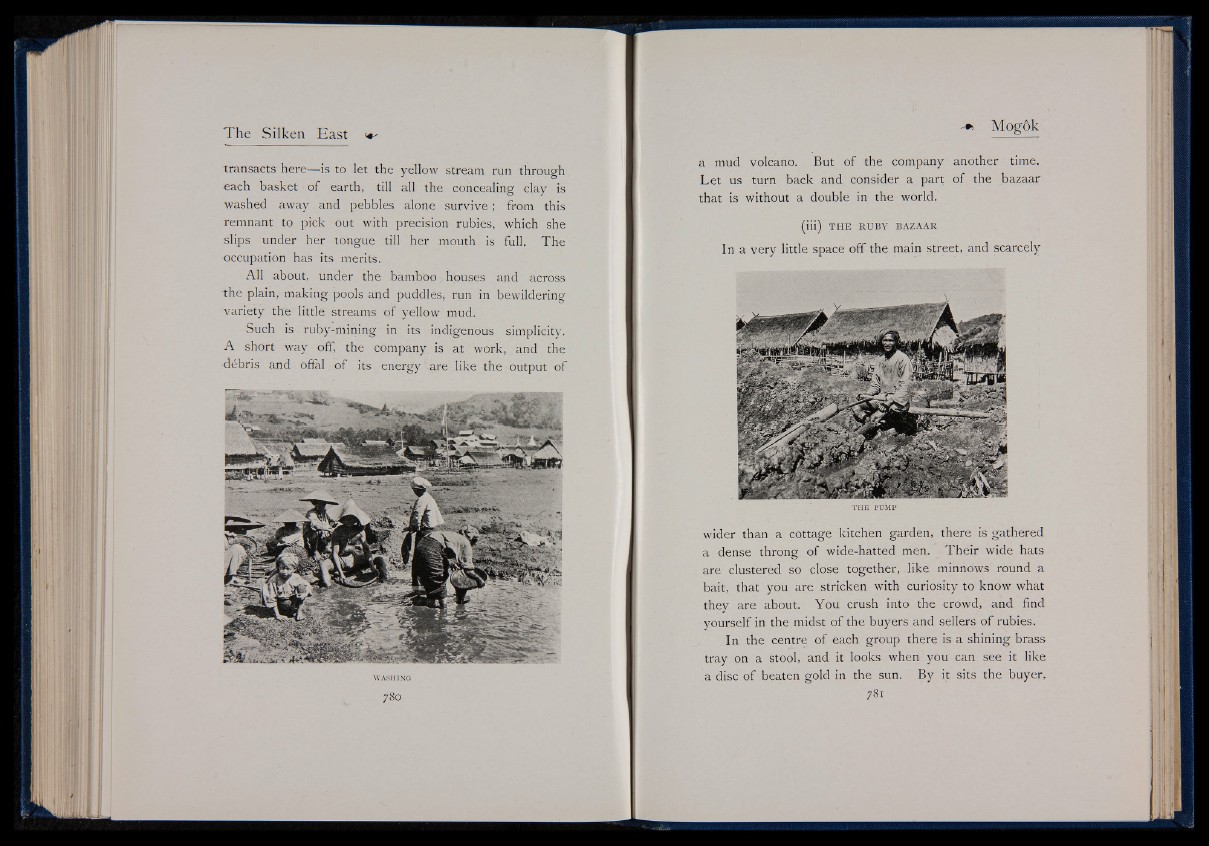
transacts here—is to let the yellow stream run through
each basket of earth, till all the concealing clay is
washed away and pebbles alone survive ; from this
remnant to pick out with precision rubies, which she
slips under her tongue till her mouth is full. The
occupation has its merits.
All about, under the bamboo houses and across
the plain, making pools and puddles, run in bewildering
variety the little streams of yellow mud.
Such is ruby-mining in its indigenous simplicity.
A short way off, the company is at work, and the
débris and offal of its energy are like the output of
WASHING
a mud volcano. But of the company another time.
Let us turn back and consider a part of the bazaar
that is without a double in the world.
( i i i ) TH E RU B Y BAZAAR
In a very little space off the main street, and scarcely
TH E PUMP
wider than a cottage kitchen garden, there is gathered
a dense throng of wide-hatted men. Their wide hats
are clustered so close together, dike minnows round a
bait, that you are stricken with curiosity to know what
they are about. You crush into the crowd, and find
yourself in the midst of the buyers and sellers of rubies.
In the centre of each group there is a shining brass
tray on a stool, and it looks when you can see it like
a disc of beaten gold in the sun. By it sits the buyer,